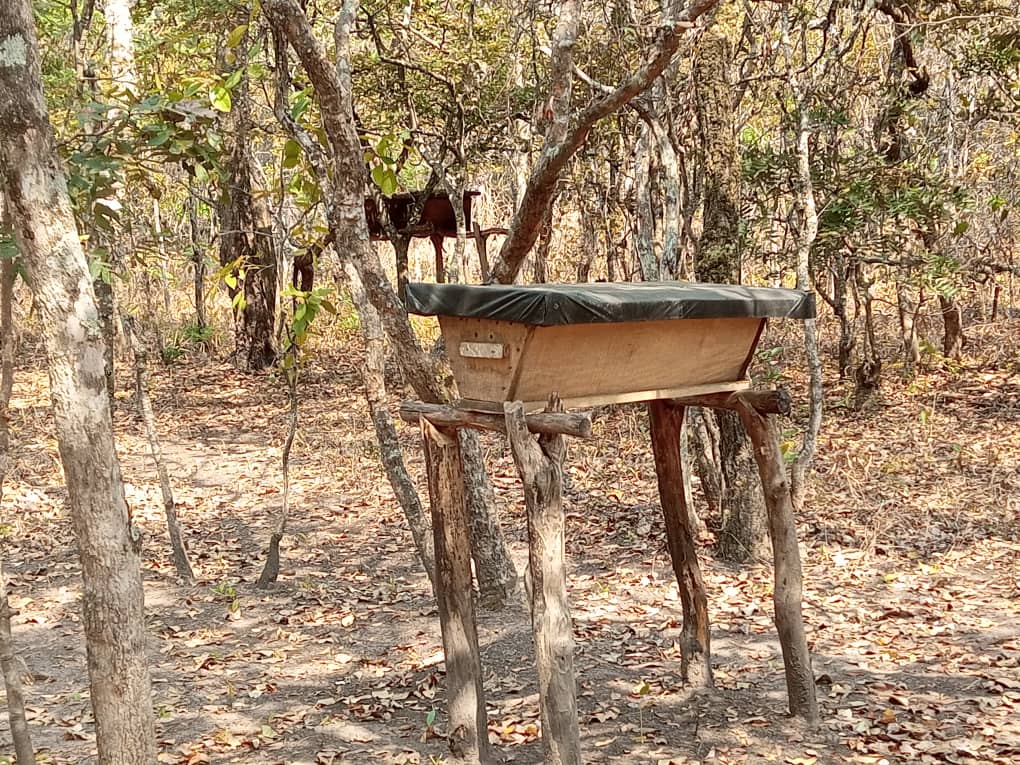To source raw and pure honey from the wild Miyombo Forests located in Mwinilunga Northwestern Province of Zambia. This is done in order to create a livelihood for the locals that also enable them preserve the forests which discourages deforestation
Raw and pure honey from the wild Miyombo Forests

The initiative seeks to tackle the pressing problem of deforestation, unemployment, and poverty within its specific context. In this region, a critical issue arises from the practice of local communities cutting down forests to produce charcoal, which they supply to urban areas as a means of income generation. The lack of localized economic activities has driven this environmentally damaging practice. To address this challenge and promote forest preservation while improving the livelihoods of the local population, an alternative solution was imperative. Consequently, a beekeeping training program was initiated, providing locals with beehives and access to a market for bee-related products. This innovative approach was born out of necessity, as two individuals, faced with unemployment after graduating from university, founded the company to address the complex interplay of deforestation and economic opportunities in their community.
The initiative involves the locals in the production process of natural, pure and organic honey who also participate in the preservation of the forests. The beekeepers are provided with modern beehives unlike traditional beehives which promote deforestation. To make sales easier for the beekeepers, market is created for them which is also a motivation for continuously engaging in the initiative. The formation of cooperatives is facilitated for the beekeepers for easy registration and engagement. The company has a well-established organogram of all the engaged personals including the board that run the company. The unique selling proposition is the supply of purely natural honey and consistency in supplying enabling the company earn the trust of well-established companies for supply. However, the initiative has some competition such as the Chiwenu Honey, Forest Fruit,Uwuchi, world honey, Kabompo honey and many more which has also adapted their approach. Although, competition is slowly growing, the company has branded itself in a way that they have continuous supply which has enabled them gain trust from their target market such as Choppies Zambia, food lovers SGC Umoyo, Twangala, protea, Mulungushi international Comference Centre, Intercontinental Hote, Mount Meru filling stations, Melisa as a local market. The company also buys honey from the local farmers at a higher price compared to its competitors.
The company has over the years trained 544 local beehive farmers from 10 and are making a living out of it. The company has deployed over 10 satellites that help in engaging with the local beehive keepers. The company’s market shareholder has increased from 0.4% to 18%. The company has 22 full time employees from 3 employees.
The company was registered with PACRA in 2018 and has been operational for five (5) years with policies in place and does not go against any rules or laws. The company is well established with training materials, machinery and human resource available to build the capacity of farmers as well as packaging and branding. With a tremendous growth of the company, their income has also increased to a point where the main issue is not the input but sales of the output. Generally the profits or benefits which vary are always more than costs or expenditures.
The initiative has room for expansion with more shareholders coming in and need for training more farmers willing to join the initiative to increase the number of beneficiaries and preservers. The initiative can also be adapted in other parts of the world as there is no specific weather required other than availability of natural plants or forests as a source of food for the bees. With the increase in deforestation levels in Zambia due to charcoal production which usually is used by people living in urban areas, there is need to find alternatives for the locals who happened to be producers and not consumers of the charcoal as they use maize shells and twig for cooking. There is need for government to come up with policies, sensitization programmes and resources that support beekeepers as they contribute positively to the preservation of forestry.
Opportunities Available
The business was room for engaging with international clients which can enbalkle the business make international supplies that are more profitable. The initiative also comes with opportunities for partnerships with well established businesses or companies that come with continues business deals.
Next
The company would need recognition through several engagements, especially through training other local farmers who would want to venture into beekeeping. The company would also need shareholders to come on board for the expansion of the increase of production

